

Hijab in Islam : the Real Meaning
When talking about Hijab in Islam , the first impression that comes to mind is a cloth covering certain parts of women’s body. But is this the real meaning of the Hijab? Is that all Islam intended by ordering to wear Hijab; covering women’s bodies? This is surely one of the functions but is not the whole thing.
Hijab in Islam concerns men as much as women. Indeed, by introducing Hijab, Islam aims to set out a framework on how we dress, how we look, and how we interact in society. This also originates from a superior objective: limiting the human desires towards the opposite gender to one’s private life in the form of a legal marriage and letting the society focus on work and productivity [1].
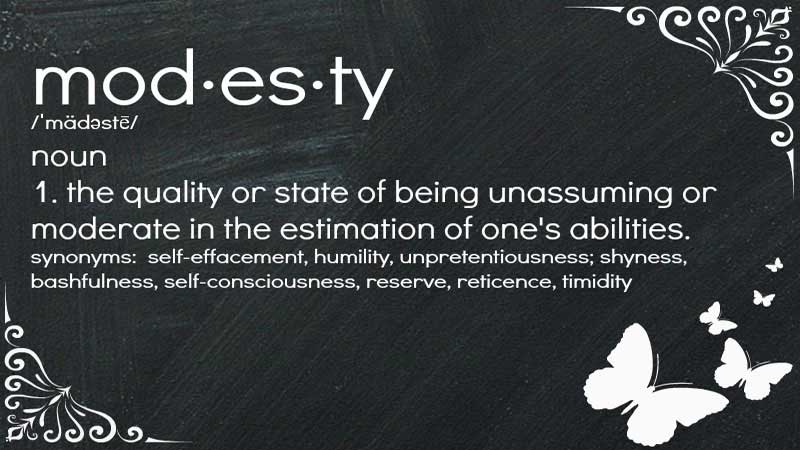
The Islamic Dress Codes
Islam requires both women and men to dress simply, modestly, and with dignity. Simply said, one should not dress in a way to draw the attention of the others to their physical features. Islam has forbidden wearing the clothing that attracts the attention of the general public, making its wearer known for it because of the type of the fabric, its color, model or because of being worn and unclean [1]; and this applies to women and men both.
According to the Holy Quran, covering and Hijab of body dates back to the time of Adam and Eve in the Garden of Eden: “So when they tasted of the tree, their nakedness became exposed to them, and they began to stitch over themselves with the leaves of paradise.” (7:22). This demonstrates that following the standards of modesty is innate in all human beings, and so do the Islamic dress codes.
Since modesty as the reason to wear the Hijab in Islam is a subjective term, the Quran and Sunnah [i] have laid out the bare minimum to prevent any confusion. The absolute minimum covering in Islam set for men is loose and unrevealing clothing from his navel to his knee [1]. Men are not allowed to wear gold jewelry, silk clothing, or adornments that are considered feminine [1].
Muslim women, like men, are not permitted to wear tight and revealing clothing; especially the ones showing the details of their body. The clothing should cover their hair and body, but covering the face and the hands, from the wrist to the fingers, is not mandated [2]. It is also forbidden for women to wear strong perfume, heavy make-up, or such jewelry that makes a jingle noise with movement and attracts the attention of others, especially strange men. They should not reveal their ornament either. These all let the Muslim women to be recognized in society by the content of their character rather than by their physical appearance and do force men to cease objectifying women.
It should be noted that besides these dress codes, Islam has mandated us to wear beautiful and clean clothes; especially when dealing with others and during prayers: “O Children of Adam! Put on your adornment on every occasion of prayer” (7:31). This also should be considered as much as the clothing rules.
Controlling the Glance as A Part of Hijab in Islam
Islamic precept has introduced a particular way of decency by presenting the concept of controlling the gaze. It is stated in the Quran that: “Tell the faithful men to cast down their looks” (24:30); and: “And tell the faithful women to cast down their looks” (24:31). It means that women and men are both required to keep their gazes downcast unless permitted [ii].
Imam Sadiq (AS) said: “A glance is a poisoned arrow from the arrows of Satan. He who refrains from it [glancing] for the sake of Allah and nothing other than Him, Allah will grant him a faith, the taste of which he will experience.” [3].
Keeping the glance downcast prevents men from lustful thoughts when looking at any woman other than their wife and allows women to protect themselves and guard their modesty. If one truly believes that God is present everywhere and at every second, He sees all he does [iii], and “He knows the treachery of the eyes, and what the breasts hide.” (40:19), he controls his glance in public and in private.
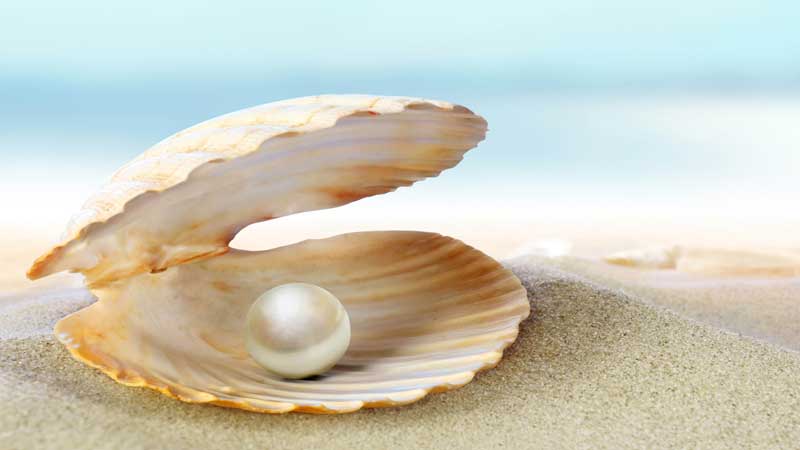
Limits to Talking to the Opposite Gender
As society is composed of women and men, their social interactions and communications are inevitable. Emphasizing the concept of decency, Islam has special guidelines for the interactions between members of the opposite sex. Islam, as the religion of moderation [iv] [4], does not allow a free relation, neither severely restricts this interaction, but allows women and men to communicate in good intention [5]. This means that the speech should be direct and both sides should consider the human identity of the other person, not the gender.
Allah says in the Quran: “wives of the Prophet! You are not like other women: if you are wary [of Allah], do not be complaisant in your speech, lest he in whose heart is a sickness should aspire; speak honorable words.” (33:32).
Although this verse of the Quran addresses the wives of the Prophet Muhammad (PBUH&HP) who were mostly at the old age, it also applies to all other women especially young ones [6]. This requires Muslims, specifically women, to use a serious tone of voice and expression when talking to the opposite gender. Otherwise, their sweet words might seduce the person whose heart might be diseased with lust.
Notes:
[i] The lifestyle and sayings of Prophet Muhammad (PBUH)
[ii] e.g., in the case that a witness looks at the face of a non-mahram to recognize him/her.
[iii] “does he not know that Allah sees [him]?” (96:14)
[iv] “Thus We have made you a middle nation that you may be witnesses to the people” (2:143)
References:
- HIjab in Islam
- A. Aroussi Howayzi, "Tafsir Noor al-Thaqalayn", vol. 3/589, T. 105.
- M. B. Majlesi, "Bihar al-Anwar", vol. 101, p. 40.
- N. Makarem Shirazi, "Tafsir Nemooneh", vol. 1, p. 483.
- Hijab in Holy Quran
- M. Qara'ati, "Tafsir Surah al Ahzab."
Share This Article
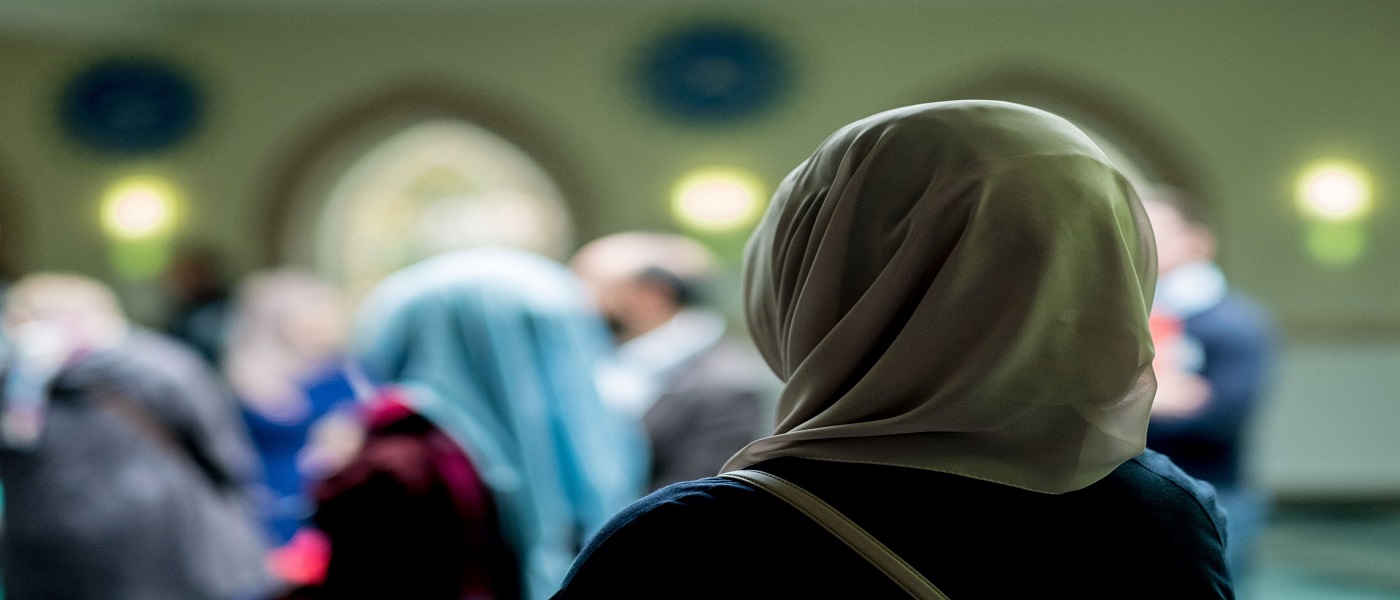
Five Misconceptions about Muslim women
I am a Muslim woman. I grew up in an Islamic country. I went to segregated schools, sports clubs, swimming pools, friendly parties, and wedding parties. Then I chose Media as my career. I worked in different journals, made films, and traveled to various cities and countries, with or without my family.
As a Muslim who believes in modesty and follows the rules of Islam, my Islamic country is an outstanding place. However, I did not realize that, until I had to leave my country. I lived in Europe for several years. I had heard that the west is where the dreams of freedom come true. But after a short while, I found myself imprisoned in Europe.
I am a table tennis trainer, a good swimmer, a good basketballer, and relatively professional in many sports. In my Islamic country, I used to go to women’s sports clubs or women’s swimming pools after school since childhood. But years ago in Europe, I could not find any sports clubs that were segregated from men, so I could wear my comfortable sports set and play my favorite sports. Because there were men everywhere, and I wanted to keep my modesty, besides my Hijab.
Then a few Muslims came together and decided to rent a sports club for a few hours over the weekend. It sounded awesome, but when we went to that sports club that we had hired for women only, I realized that European Muslims who were born and raised in European countries were mostly very weak in sports.
Basically because since childhood they did not have access to segregated sports clubs to learn and practice any sports. And of course, my problem was that I could not find anyone to play professionally with and enjoy playing! Therefore for as long as I lived in Europe I felt imprisoned.
And when I returned to my Islamic country, I was so thankful that I had sports clubs (where we have our athletic competitions), gyms, swimming pools, spas, and even women-only parks! where we could enjoy running without a scarf or taking a sunbath, and not worry that we are doing anything against God’s will or orders.
Talking too much about my memories of a Muslim woman was all for the goal to discuss a few misconceptions about being a Muslim woman and deprived of social rights.
1. Muslim Women Cannot Educate!
Well! What should I say? This article is being written by an educated practicing Muslim woman who is now educating other Muslim and non-Muslim women.
We have narrations from our beloved prophet (PBUH&HP) that encourage us to learn until death; “Gain knowledge traveling” [1] or “Gain knowledge even if it is in China.” [2], which emphasizes the importance of gaining knowledge during one’s lifetime, even if one has to travel far distances and learn the knowledge from non-Muslims.
Also in another narration, our prophet (PBUH&HP) makes it an obligation to learn, and not only an obligatory for men, but he emphasizes that it is also a lifetime and necessary for women to be knowledgeable; “Gaining knowledge is an obligation upon all Muslim men and women” [3].
We also read in the history that the prophet’s (PBUH&HP) daughter and granddaughters were excellent teachers and used to teach women of their era.
The only issue that is raised about women’s education is being in mixed classes and groups with male students. In such situations, it is not women’s education that is forbidden (Haram), but like any other situation of mixed gatherings (men and women), people should be wary of their relationships.
Women should avoid flirting and chatting about different issues with men if it is not necessary. The relationship between students of the opposite sex is lawful (Halal) as long as there is no intention for pleasure. [4]
"Dalia Mogahed was the US’ first Muslim woman in the White House back in 2009 and one of Barack Obama’s ‘closest advisors’"
2. They Cannot Be Engaged in Political Activities!
In Islam some duties that are obligatory for men, such as defending the borders of their country if it is attacked, or working outside the house to earn money for a living. But making it compulsory for men, never means that it is forbidden for women.
“Islam views women as masters of the family and emphasizes that the family environment must become a safe, dignified and tranquil one for women so that they could do their best in fulfilling their main task which is to care for the family .” That is the reason for which there is no force on women to work and bring money for the family. [5].
And that, in fact, is the most important social activity in itself. However, if a woman would like to participate in different social and political activities, besides her role as a wife or a mother, there are no objections towards it. Muslim women have no essential duties in their homes such as cooking or cleaning or sewing, etc. unless they wish to do it themselves. Otherwise, the husband could hire a servant to do the house works.
Nevertheless, the fact that women are less active in political activities comes down to their feminine nature. Imam Ali (AS) says: “woman is like a fragrant flower, and not a champion” [6], which means she should not be expected to do tasks that are beyond her capabilities. But it does not mean that she cannot choose to do things that may naturally be against her nature.
Also, some women may not choose to do manly tasks. However, at some point, they have no choice but to do so. For example, it is narrated that at the time of Imam Ali (AS), Lady Fatima (AS) went to the mosque and performed speeches. Or after the event of Ashura, Lady Zainab (AS) took on her shoulders the responsibility that was even hard for a few strong men and performed political speeches in different places.
3. They Cannot Drive!!!
There are plenty of issues that are forbidden in Islamic countries, either for men or women, which are not related to the Islamic law but go back to the old cultures and traditions of those nations. For example, wearing a veil for Muslim women, or preventing women from education, etc. are all amongst those old cultures.
However, many of them have been mixed up with the Islamic law, and people regard them as religious matters instead of social conventions. But we have to be clever enough, to distinguish between the Islamic law and old traditions of different nations. The same way that Muslims do not relate mistakes of “so-called” Christians to the religion of Christianity.
Driving is forbidden for women in very few countries, and there is no firm Islamic ruling to support it.
In fact driving in today’s world, makes traveling safer for women and there is no rational opinion against it.
4. They Cannot Play Sports!
There are many narrations from our Prophet (PBUH) that encourage people to do sports that are common in their time such as swimming, horse riding, and archery, and in those narrations, women were never excluded. In fact, no reference shows sports to be forbidden (Haram) for Muslim women. But in this case, again it is the issue of modesty and Hijab that should be observed.
Regarding sports that are forbidden (Haram), there is no difference between men and women. Sports that are connected to gambling or may harm the player are forbidden (Haram) for both men and women.
5. They Cannot Have Fun!
There is no problem for women having fun if they do not commit a sinful act; and again, there is no difference in this between men and women. The only point for women is that they should consider keeping their hijab and modesty (Haya) and do not join activities that may harm their chastity. You can read about forbidden (Haram) and lawful (Halal) fun in Islam in related articles.
Reference:
- Wasa’el al-Shi’a, vol. 27, p. 27
- Dailami, Irshad al-Quloub ila- al-sawa, vol. 1, p. 165
- Amali Al-Sadouq, p. 419.
- muslim women
- women in islam
- Ghurar al-Hikam & Durar al-Kalem, p. 759
Read More
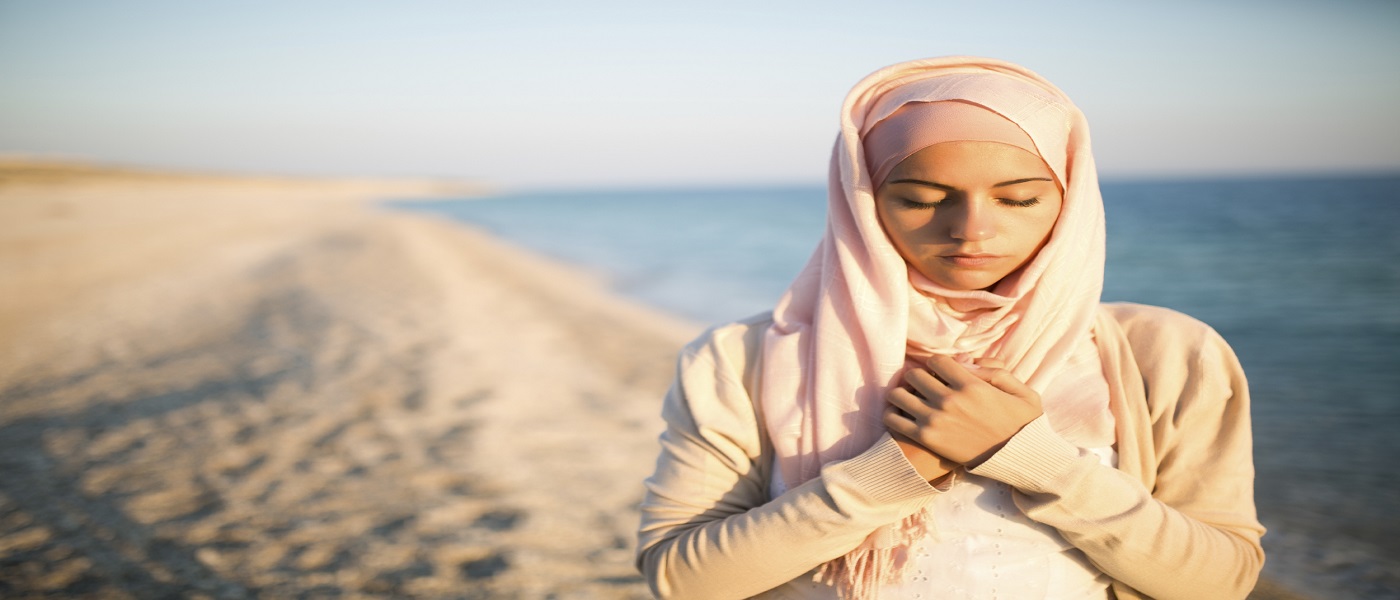
Women in Islam
As a New Muslim woman, I find the Islamic lifestyle fully responsive in every aspect of my life. Here, Salam Islam deals with different issues regarding women in Islam. Salam Islam is a platform to make those who convert to Islam, more familiar with the benefits that the Islamic life can offer them.
Islam pays specific attention to women’s rights in life. The important role of women in the family, in society and their huge influence in the world, has not been neglected in Islam, as well as their personal and spiritual life is strongly protected based on Islamic lifestyle.
Let’s quickly monitor what Salam Islam provides about women in Islam;
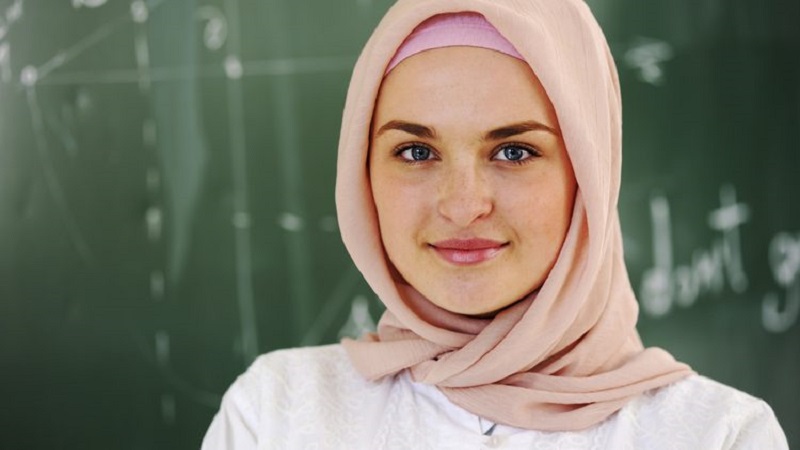
Personal life of Women in Islam
Muslim women’s life might sound boring for those who have not chosen the Islamic lifestyle. A new convert to Islam may find herself confused in different aspects of her life. Salam Islam explains that Muslim women, better than all other women, can enjoy their lives by having lawful fun.
The issue of the Islamic dress code or Muslim women’s Hijab is also discussed from different standpoints in Salam Islam. What does Hijab mean? Is there a history of Hijab in Abrahamic religions? Why at all should they wear Hijab and cover their hair? Is there a chance that one converts to Islam without wearing Hijab? Does the Islamic dress code change from time to time and place to place, based on the conditions of time and place?
Issues Concerning Women’s Marriage in Islam
Salam Islam also covers the important issue of women’s marriage. It tries to clarify women’s rights in the family, and their rights in choosing the right spouse. Since women’s dignity and respect is very important in Islam, therefore women are free to choose a spouse based on Islamic guidelines. It is explained why Islam will allow women to marry a non-Muslim man and live under his demand.

Women’s rights in Islam in society
The issues of women in Islam are sometimes wrongly described and understood in the west. Some western people based on their shallow understanding of Islam, undermine the high status of women in the whole system of Islamic life.
Salam Islam tries to answer most of the misconceptions regarding the aspect of women’s lives in society. Are women in Islam inferior to men? Can they have a career? Why should they cover themselves in society? What about feminism and women’s rights in society?
Prominent Women in Islam and the History
Is there any practical and tangible model for the life of women in Islam? To answer this question, Salam Islam studies the life of prominent women mentioned in the Holy Quran and the history. By studying their life stories and events, one will be inspired to follow the lifestyle of such great role models to have a successful life like them.
Role models such as Saint Mary, Hagar; the Wife of Prophet Abraham, Fatimah; Daughter of Prophet Muhammad (PBUHHP), and Zainab; the granddaughter of Prophet Muhammad (PBUHHP).
If you have any questions about Mulsim women’s issues, you are welcome to send us your questions.
Read More

